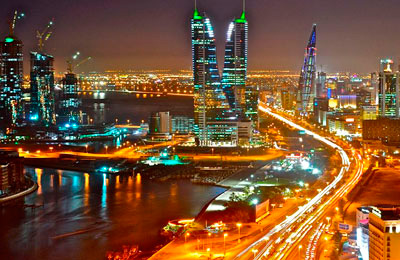
Bahrain leads MEA region in FDI strategy
, September 3, 2015
Bahrain has ranked first for its foreign direct investment (FDI) strategy in the Middle East and Africa region, according to a recent report.
The fDi’s Middle East and African Countries of the Future 2015/16 pointed out that since its conception in 2001, the Economic Development Board for Bahrain (EDB) has operated to attract investment, help investors realise projects and ensure they are assisted once established.
The agency organises events such as roadshows and delegation visits to promote the country both locally and internationally, it said.
Its staff attend global events and training sessions to ensure they maintain their high quality service to investors.
The training includes FDI training, as well as project management and on-the-job training with external consultants.
Between 2009 and 2014, the board has helped attract 190 FDI projects to Bahrain, according to greenfield data monitor fDi Markets.
The promotion of further integration with other countries in the Gulf Cooperation Council (GCC) – has brought investors closer to a potential market of more than 48 million people, said the report.
Major infrastructure developments include a GCC railway, which will link all six Gulf states and ease the movement of people and freight.
The country is also investing heavily in its airport, modernising and increasing the capacity of Bahrain International Airport to 14 million passengers annually.
Meanwhile, Middle Eastern countries have dominated the ranking with UAE, Qatar and Saudi Arabia grabbing the top three places.
UAE
The UAE topped the overall ranking of countries in the fDi magazine’s ranking, coming first place for economic potential - with a low unemployment rate of 3.8 per cent, while it also enjoys high levels of GDP.
According to greenfield investment monitor fDi Markets, the country attracted 1,514 foreign investment projects between 2010 and 2014 – the most of any country in the Middle East region.
Nearly one-third of companies investing in the UAE cited the ability to grow domestically as their reason for investment.
The UAE was also the source of 1,003 outward FDI projects, nearly 30 per cent of which were in the financial services sector, with companies such as the NMC Group conglomerate, Dubai Islamic Bank and the National Bank of Abu Dhabi investing abroad.
More than four per cent of the country’s gross national income is spent on education,the fifth highest of any Middle Eastern country studied, resulting in high rates of secondary education enrolment and a literacy rate of more than 99 per cent, said the report.
The country is considered one of the most politically stable in the region.
The low import and export costs encourage investors, with the presence of seven medium or large ports with access to shipping lanes in the Persian Gulf and through the Strait of Hormuz.
Meanwhile, the country's 25 airports serve 234 international destinations, helping the country to place first in the connectivity category.
QATAR
Qatar, on the other hand, is the world's richest country by GDP per capital, according to the International Monetary Fund (IMF). It has a high rate of population growth (5.6 per cent) and an unemployment rate of just 0.5 per cent.
Between 2010 and 2014, the country has attracted 275 inward FDI projects, one-third of which were in the business services sector. GDP is forecast to grow by 8.53% annually until 2019, said the report.
The businesses have been attracted to the country for its low 10 per cent corporation tax rate and its ease of doing business, where starting a business takes only 8.5 days.
SAUDI ARABIA
Saudi Arabia, the third most populous country in the Middle East, ranked in the top 10 of all categories in the ranking.
The country attracted 516 inward FDI projects between 2010 and 2014, the second highest level of inward investment of all Middle Eastern countries, said the report.
Charles Foster, managing director of Middle Eastern operations for markets research company Millward Brown (a subsidiary of UK-based WPP), which opened an office in Jeddah in December 2013, cited the climate for doing business as the main reason for the company’s presence, describing the Saudi Arabian market as 'dynamic' and 'evolving'.
The kingdom was placed second in the cost effectiveness category, with low import and sxport costs and low total rate of tax for business at about 14.5 per cent of profits.
The businesses establishing themselves in Saudi Arabia do not have to pay to register a property, there is no minimum wage legislation and electricity is cheap, it added.
SOUTH AFRICA
South Africa ranked seventh overall, and first among African countries, attracting the highest number of inward FDI projects in Africa. Between 2010 and 2014, 667 investments were made, 19 per cent of which were in the business services sector, followed by software and IT services, and financial services.
The region’s fifth most populous country boasts its third-highest level of GDP, at purchasing power parity, at $683.15 billion, behind Nigeria and Egypt.
UNIQUE REGION
The Middle East and Africa are home not just to some of the world’s fastest growing economies, but also some of its richest oil reserves, said the report.
The historic nuclear deal signed by Iran in July could dramatically shift the results of the next ranking.
Lifting tough sanctions will allow companies to tap into oil reserves reported to be worth $185 billionn by 2020. However, the region is also home to several extremist terrorist groups, including Islamic State and Boko Haram, said the report.
Where walls between east and west are coming down in Iran, they are being reinforced in other parts of the region, shifting investor focus and confidence in fluid motions, it added. - TradeArabia News Service







